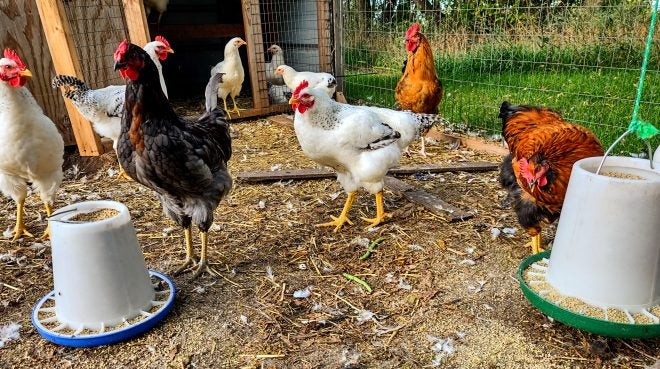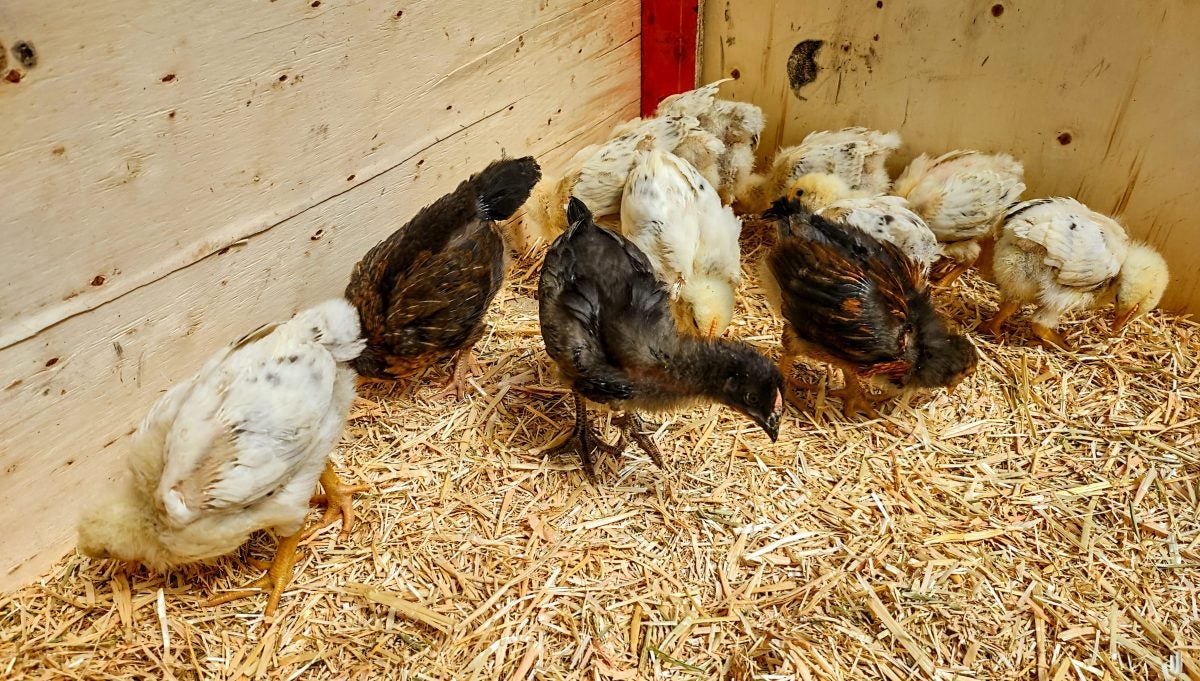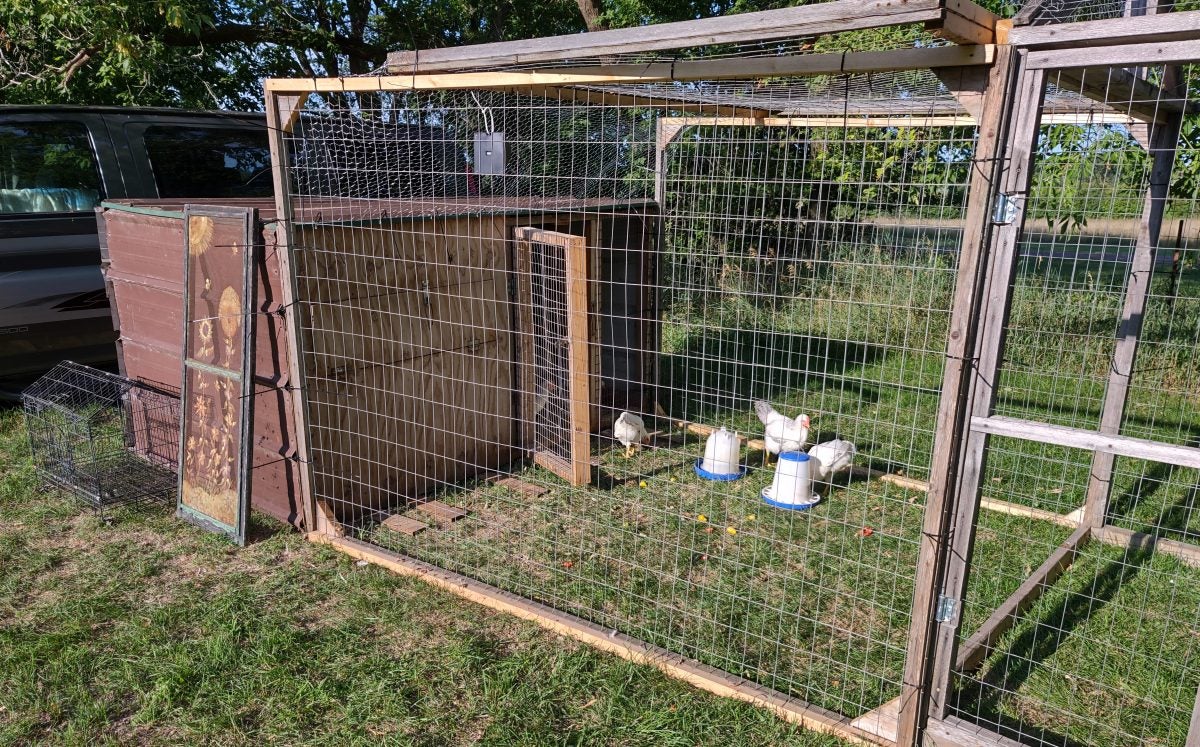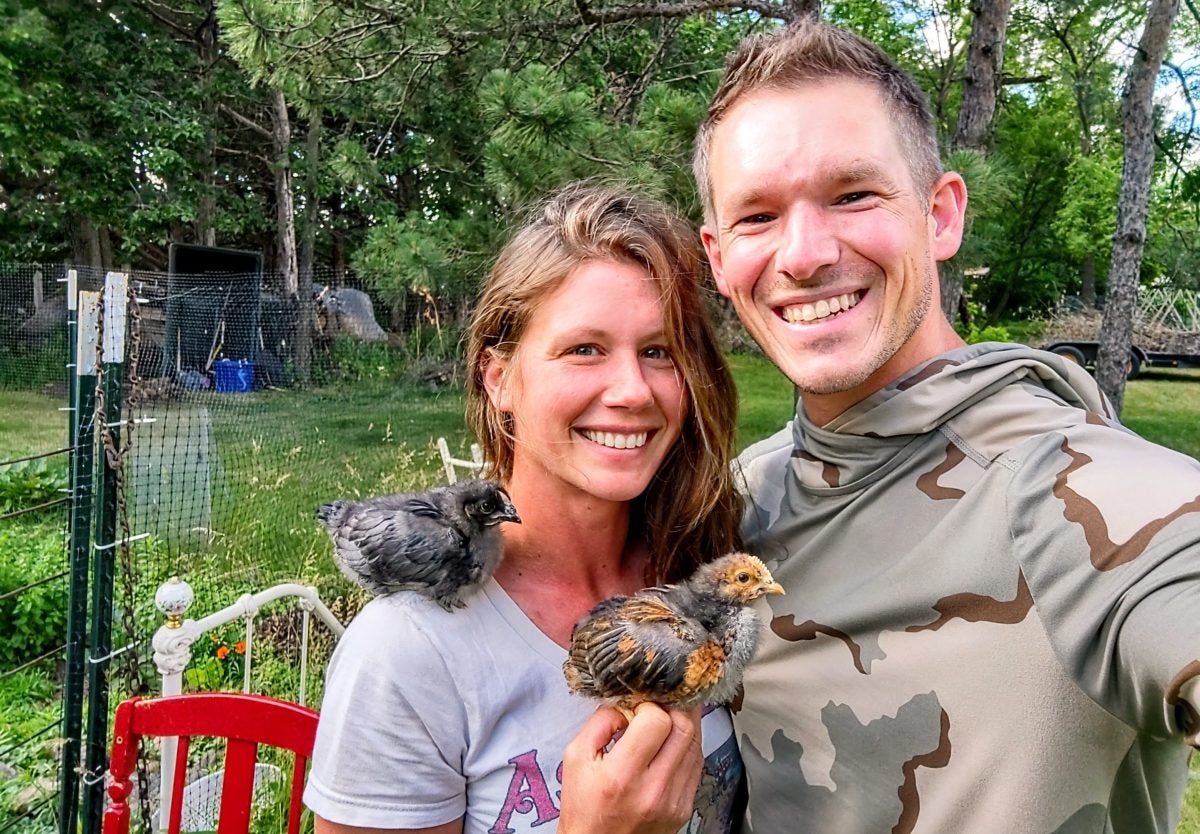Home on the Range #035: The 5 Bare Necessities of Raising Chickens
Adam Scepaniak 03.03.23

In last week’s edition of “Home on the Range,” we discussed two popular breeds of egg-laying chickens that homesteaders and backyard enthusiasts typically enjoy in Delaware and Orpingtons. They have good temperaments to be around children/families, are good egg-layers, and are relatively low maintenance – all good attributes for the hobbyist looking to collect eggs. So, this week we are now going to cover the 5 bare necessities you need in raising chickens successfully on a tiny- to even moderate-size scale.
“Home on the Range” Series on AllOutdoor
- Home on the Range #034: Delaware & Orpington Chickens – Egg Factories
- Home on the Range #033: Mangalitsa Pigs – Trash Disposal Bacon Factory
- Home On The Range #032: Winter Game Management w/ Moultrie Mobile
- Home On The Range #031: Trail Camera Talk – Photo Upload Frequency
- Home On The Range #030: Moultrie Mobile Delta Base Cellular Camera
- Home On The Range #29: Moultrie Mobile – Game Surveillance & Security
Welcome to our reoccurring series of “Home on the Range.” Here, we would like to share all of our experiences for those who may be homesteading, living off the land, hunting, farming, ranching, and truly investing in nature and the great outdoors. The ability to provide for yourself and your family can be tremendously rewarding and simultaneously difficult at times. So, in “Home on the Range” we want to share our different exploits so you can learn and hopefully we can receive your feedback along the way as well.
The 5 Bare Necessities of Raising Chickens
While the internet might lead you to believe there are a bunch of whiz-bang! contraptions you need to buy (because they are flatly trying to sell you something) for raising chickens, the honest truth is you do not need a lot. There are some fundamental basics you do need though when raising chickens, but it is honestly not much. These are the 5 bare necessities you need to maintain a happy flock.
- Shelter – Safe shelter away from predators and inclement weather (rain in the summer and snow in the winter)
- Food – Vegetable & fruit table scraps, clover, grasshoppers, and store feed can all be used
- Water – Clean water daily aids in digestion, egg production, and healthy birds (make sure it’s not froze in winter)
- Sunlight – Chickens operate off of sunlight exposure – circadian rhythms – to guide them in their egg laying
- Love – Talk to your birds, hold them, pet them, respect them, let them know you are “safe” to them

The 5 bare necessities previously mentioned seem pretty intuitive, but that is honestly all you need. Yes, there are additional elements that’ll make for happier chickens like a free-range area (in the form of either a “run” area or a fenced-in field) and getting nerdy about their diet, but you can get by with not a lot and still do right by your birds. Simply stick to the big 5 of shelter, food, water, sunlight, and love for your egg-laying chickens and they will be your new egg factories keeping you supplied for days to come.
Shelter
When it comes to shelter for your Delaware, Orpington, or any breed of chickens it doesn’t need to big and/or extravagant. Start small, start simple, and you can always build up from there. My fiancé and I affectionately started with a “chick box.” A simple box I built that we could put a heat lamp in with food, water, and enough room for a dozen fluff ball chicks. From there – as they got bigger and older – we transitioned them to a firewood hutch that was retrofitted to become a chicken coop. With an added on “run” area, our Delaware and Orpington chickens were happy campers.

Food
When it comes to food you can always buy chicken feed at your local farm ‘n tractor supply or a hardware store, but it is better to give them as much natural foods as possible (no, we are not talking about “organically-labeled” fancy stuff). If you go around your own property – or better yet, let your birds free-range – you can get your egg-layers clover, grasshoppers, bugs, insects, tiny seeds, nuts, and other natural foods. Chickens, contrary to popular belief, are omnivores – they eat vegetables and meat. So, to eat bugs (meat) and seeds (vegetables) are both to their liking. You can also feed them store-bought feed and even your unwanted vegetable and fruit table scraps.
Water
Water is vitally important, and while most people could intuit that, it is supremely important that it is clean water. What is meant by that (because no one is presumably giving their birds bad water) is you need to clean or freshen up their water once or twice daily. While raising chickens they can look adorable, but they are also goofy – and in some respects, dumb – because they’ll trample their own water dish and even poop in it. So, be sure to give them fresh water as frequently as time allows.
Sunlight
Sunlight is important for chickens for some of the same reasons why we need sunlight. Most importantly for chickens, it helps guide and set their circadian rhythm. The more consistent their rhythm is and the longer the day is the more eggs you are likely to get. For the same reason why people can be affected by S.A.D. – seasonal affective disorder; unhappy in the winter due to the gloominess and lack of sunlight – so, too, can chickens become glum in the winter and egg production becomes lacking. So, even having a lightbulb on a timer or some type of window to the cold, outside world is helpful in the winter.
Love
If you chuckled at this “bare necessity” that’s completely fine, but it could be argued this is the most important one. Chickens, just like any other animal, do feel stress. They are aware of dangers, threats, and even the angry/temperamental moods of their foul counterparts. They instinctually are on the lookout for predators like raccoons, hawks, and foxes. So, if you – chicken master overlord – are an unpleasant person, accost your chickens, and don’t bluntly show them love, they will be stressed by you and fear you. Similarly to how stressed cows produce less milk, chickens will produce less eggs if their anxiety is high, they’re stressed, or they fear their chicken feed provider. Maybe you don’t need to hug your chickens (I still recommend it), but you should talk to them in pleasant tones, walk slowly/cautiously around them, feed them well, protect them, and… love them! It’s not only going to give you more eggs, but its the right thing to do. It makes you a good steward of animals which we should all aspire to be.
If you found these 5 bare necessities helpful we would love to hear your thoughts on it. Raising chickens can be a fun, enjoyable, and rewarding process. Plus, you’re simultaneously providing food for your family. As always, let us know all of your thoughts in the Comments below, and whether you currently are raising any pigs. We always appreciate your feedback.
